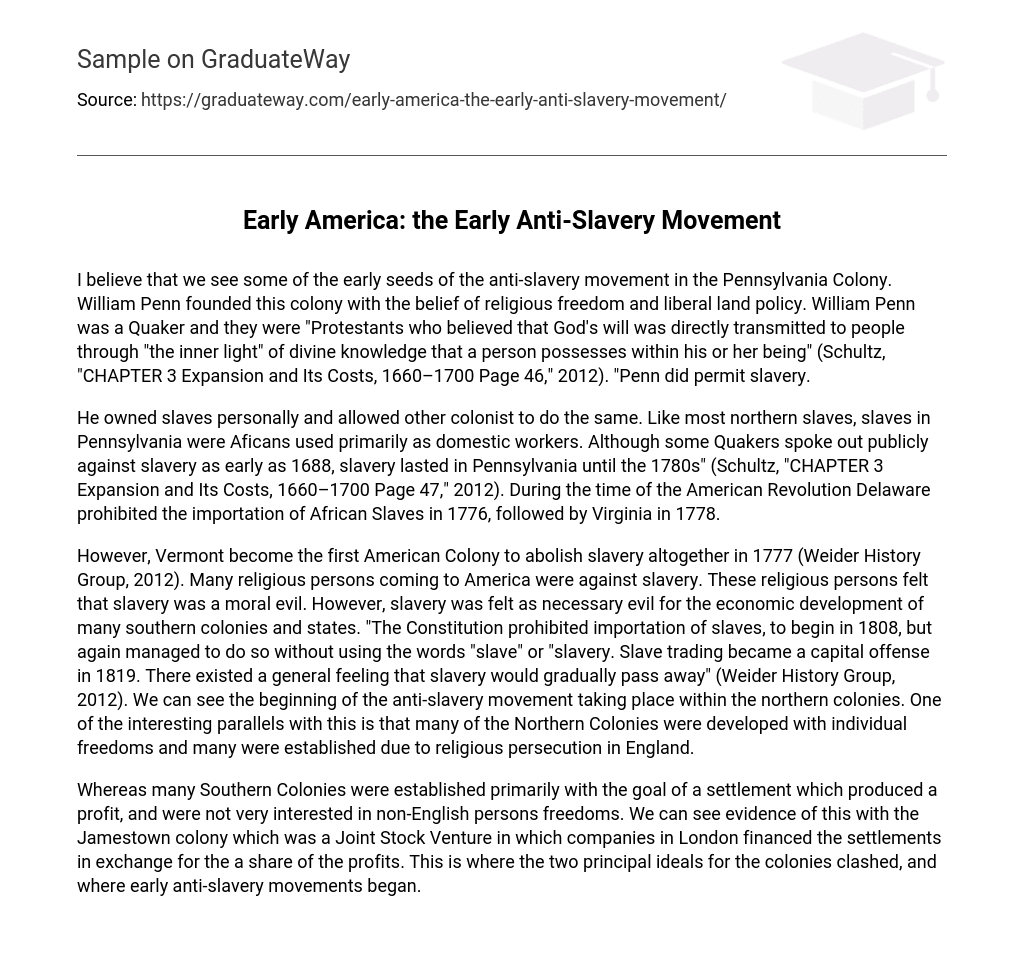I believe that we see some of the early seeds of the anti-slavery movement in the Pennsylvania Colony. William Penn founded this colony with the belief of religious freedom and liberal land policy. William Penn was a Quaker and they were “Protestants who believed that God’s will was directly transmitted to people through “the inner light” of divine knowledge that a person possesses within his or her being” (Schultz, “CHAPTER 3 Expansion and Its Costs, 1660–1700 Page 46,” 2012). “Penn did permit slavery.
He owned slaves personally and allowed other colonist to do the same. Like most northern slaves, slaves in Pennsylvania were Aficans used primarily as domestic workers. Although some Quakers spoke out publicly against slavery as early as 1688, slavery lasted in Pennsylvania until the 1780s” (Schultz, “CHAPTER 3 Expansion and Its Costs, 1660–1700 Page 47,” 2012). During the time of the American Revolution Delaware prohibited the importation of African Slaves in 1776, followed by Virginia in 1778.
However, Vermont become the first American Colony to abolish slavery altogether in 1777 (Weider History Group, 2012). Many religious persons coming to America were against slavery. These religious persons felt that slavery was a moral evil. However, slavery was felt as necessary evil for the economic development of many southern colonies and states. “The Constitution prohibited importation of slaves, to begin in 1808, but again managed to do so without using the words “slave” or “slavery. Slave trading became a capital offense in 1819. There existed a general feeling that slavery would gradually pass away” (Weider History Group, 2012). We can see the beginning of the anti-slavery movement taking place within the northern colonies. One of the interesting parallels with this is that many of the Northern Colonies were developed with individual freedoms and many were established due to religious persecution in England.
Whereas many Southern Colonies were established primarily with the goal of a settlement which produced a profit, and were not very interested in non-English persons freedoms. We can see evidence of this with the Jamestown colony which was a Joint Stock Venture in which companies in London financed the settlements in exchange for the a share of the profits. This is where the two principal ideals for the colonies clashed, and where early anti-slavery movements began.





